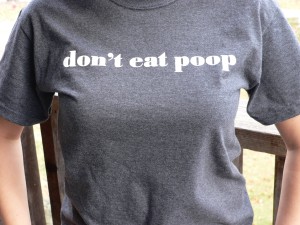It seems like the food industry’s been getting into a lot of, well, sh*t lately.
 Between reports that all hamburger meat contains traces of poop to the poop-infested cilantro incident that made us rethink our guac obsession, you’d think that hazmat suits would be trending. Food production is a huge industry, so it’s (unfortunately) impossible for producers to avoid contamination 100 percent of the time—but don’t go on a germaphobe rampage just yet, say experts.
Between reports that all hamburger meat contains traces of poop to the poop-infested cilantro incident that made us rethink our guac obsession, you’d think that hazmat suits would be trending. Food production is a huge industry, so it’s (unfortunately) impossible for producers to avoid contamination 100 percent of the time—but don’t go on a germaphobe rampage just yet, say experts.
While the thought of stuffing your face with foods that are laced with poop bacteria is enough to make anyone gag, the odds of it happening are extremely low. There are uber-strict guidelines in place for the food industry called Good Manufacturing Practices (GMP), which outline acceptable and unacceptable practices within a food production setting, says Angela M. Shaw, Ph.D., assistant professor of food science and human nutrition at Iowa State University. If a food contains traces of fecal matter, it’s because of food-safety management issues within a particular company that isn’t following proper GMP.
Because the rules and regs are super-strict on every level, the icky cases of cross-contamination we hear about are usually linked to unforeseen circumstances—and can happen at any time during the production process.
